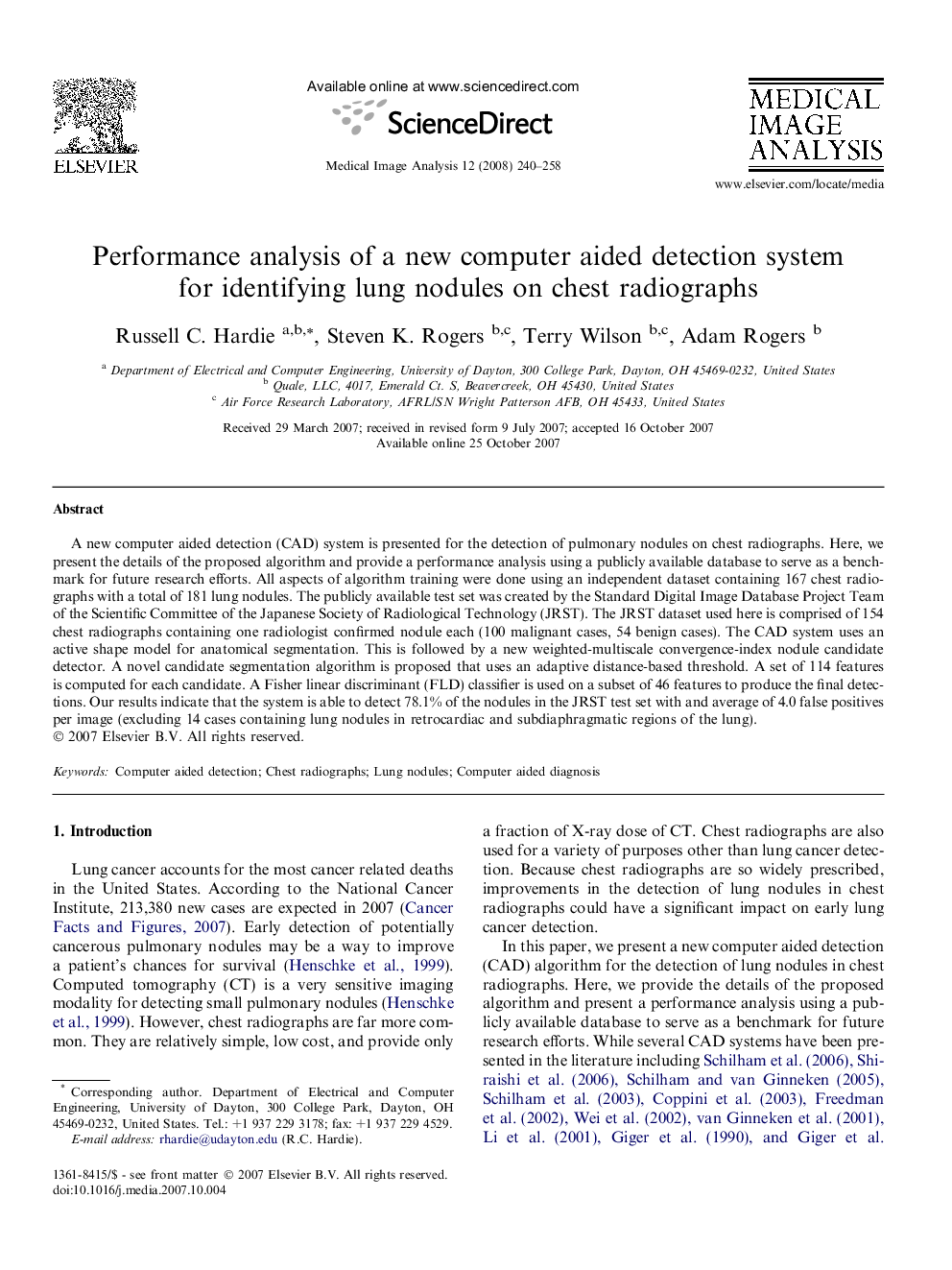| کد مقاله | کد نشریه | سال انتشار | مقاله انگلیسی | نسخه تمام متن |
|---|---|---|---|---|
| 444173 | 692904 | 2008 | 19 صفحه PDF | دانلود رایگان |

A new computer aided detection (CAD) system is presented for the detection of pulmonary nodules on chest radiographs. Here, we present the details of the proposed algorithm and provide a performance analysis using a publicly available database to serve as a benchmark for future research efforts. All aspects of algorithm training were done using an independent dataset containing 167 chest radiographs with a total of 181 lung nodules. The publicly available test set was created by the Standard Digital Image Database Project Team of the Scientific Committee of the Japanese Society of Radiological Technology (JRST). The JRST dataset used here is comprised of 154 chest radiographs containing one radiologist confirmed nodule each (100 malignant cases, 54 benign cases). The CAD system uses an active shape model for anatomical segmentation. This is followed by a new weighted-multiscale convergence-index nodule candidate detector. A novel candidate segmentation algorithm is proposed that uses an adaptive distance-based threshold. A set of 114 features is computed for each candidate. A Fisher linear discriminant (FLD) classifier is used on a subset of 46 features to produce the final detections. Our results indicate that the system is able to detect 78.1% of the nodules in the JRST test set with and average of 4.0 false positives per image (excluding 14 cases containing lung nodules in retrocardiac and subdiaphragmatic regions of the lung).
Journal: Medical Image Analysis - Volume 12, Issue 3, June 2008, Pages 240–258